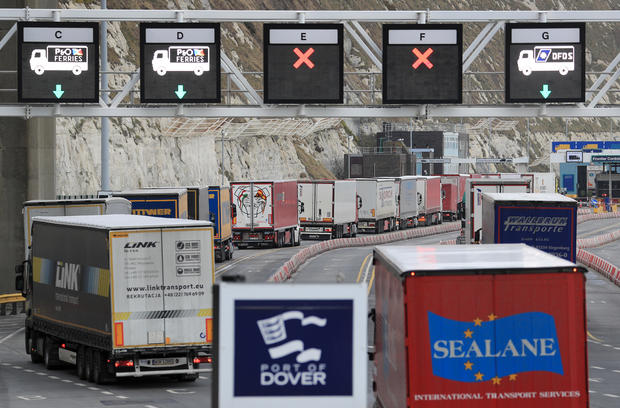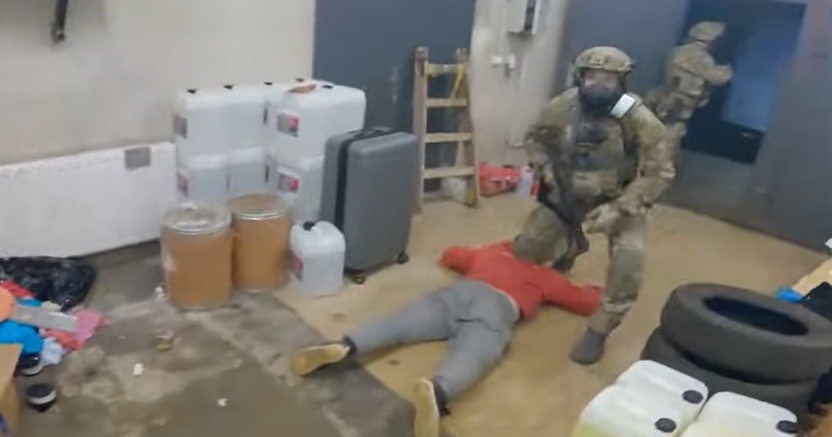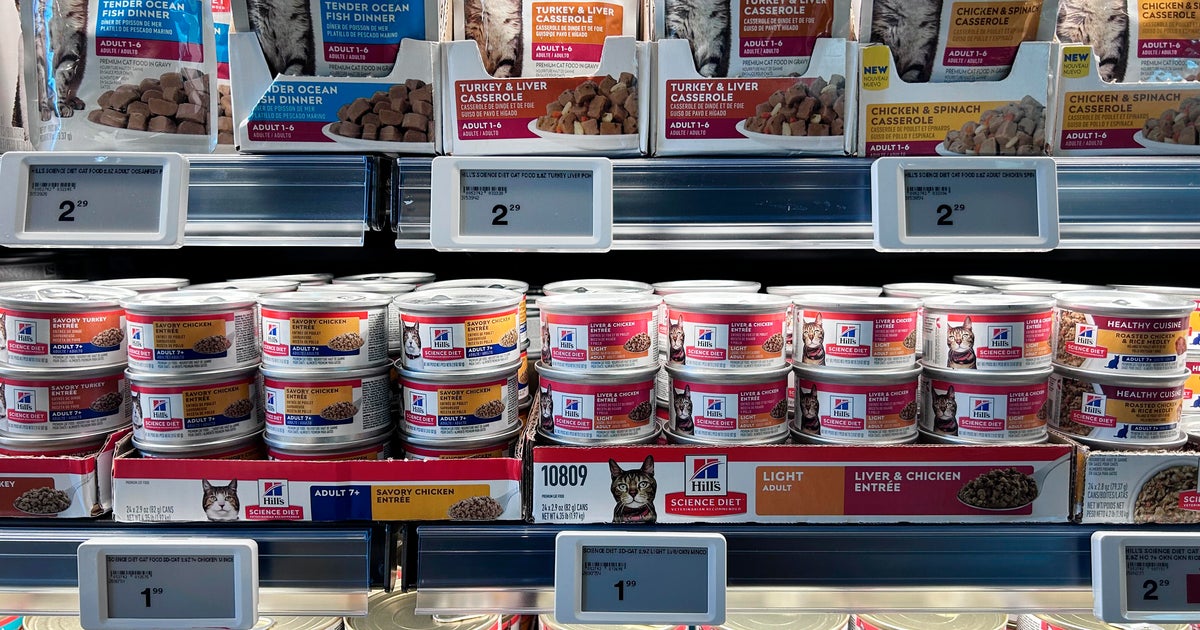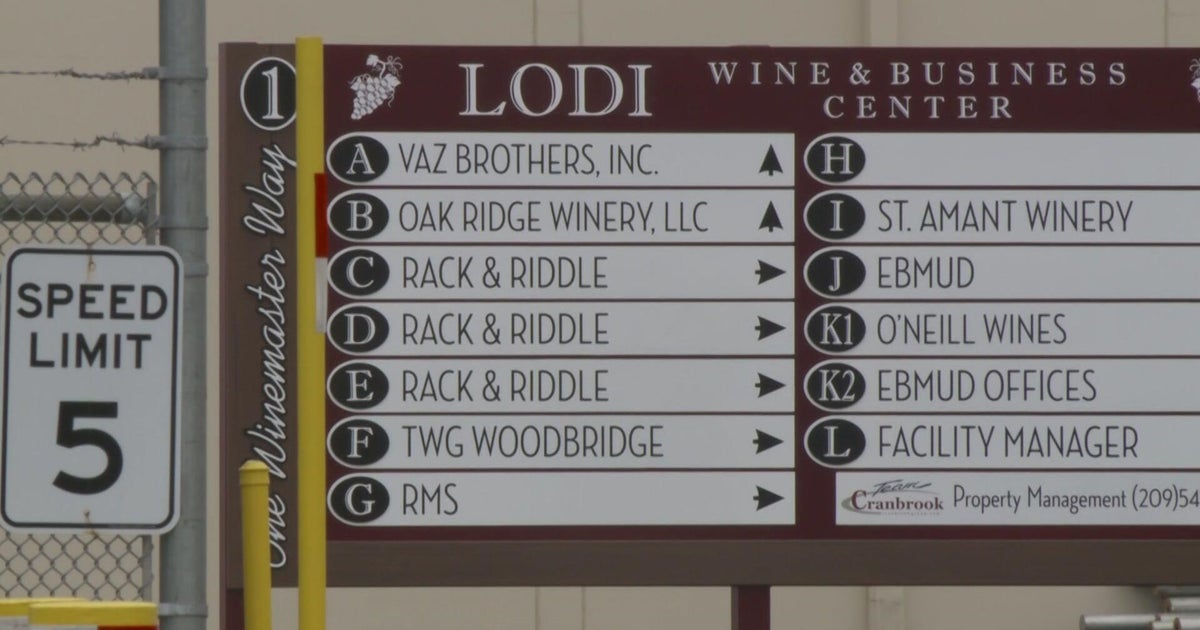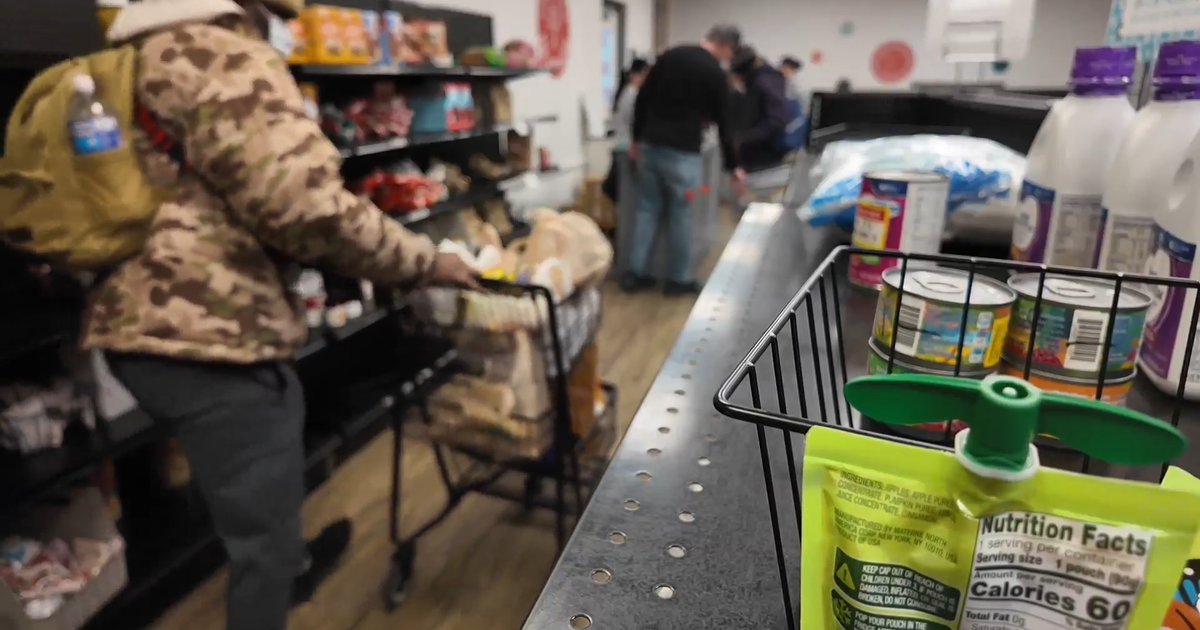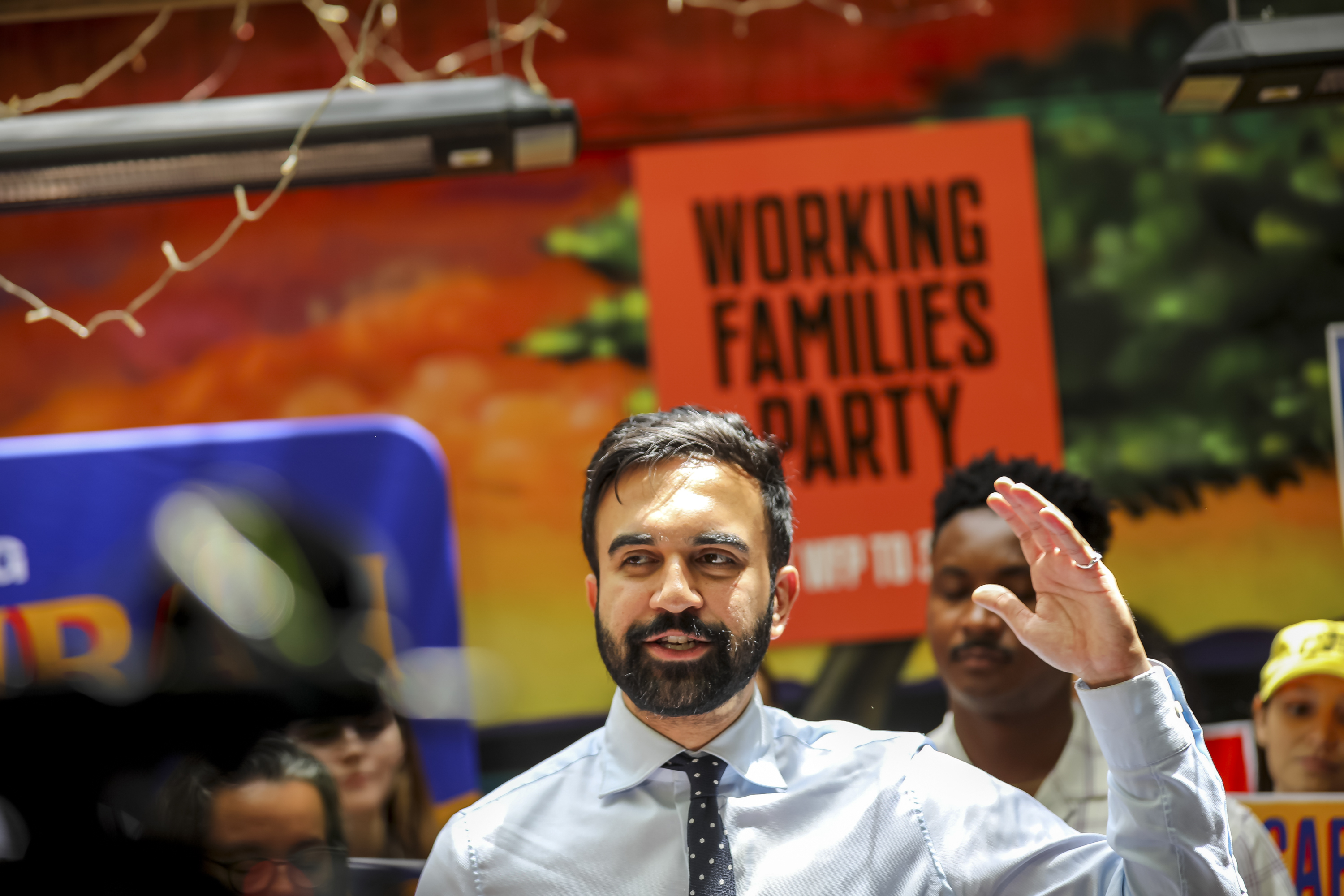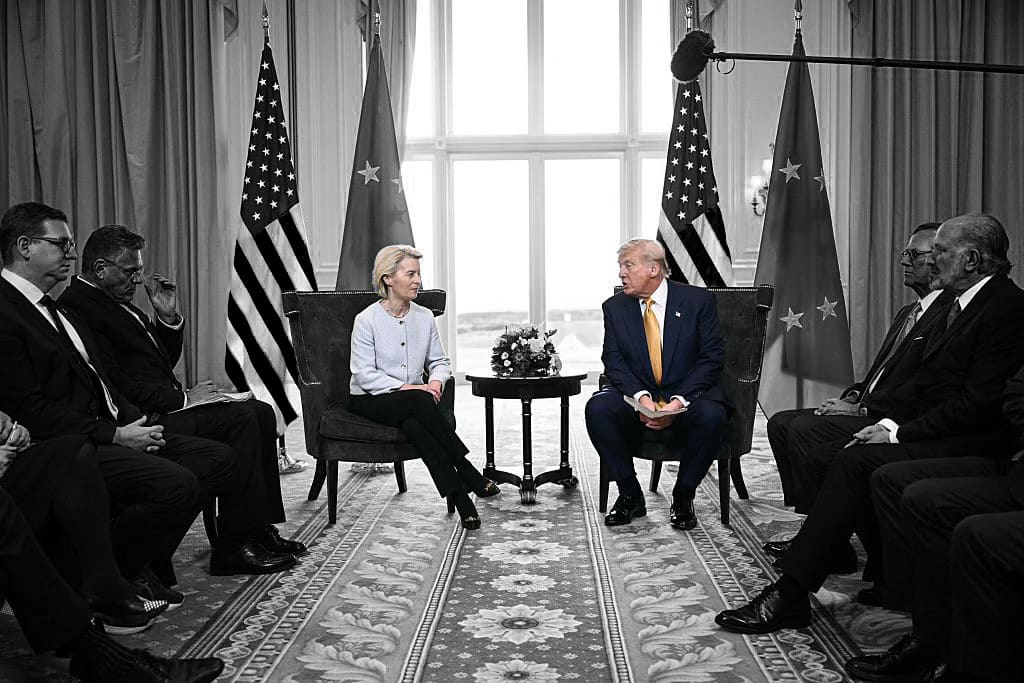U.K. warned of fleeing business and food shortages as no-deal Brexit looms larger
London — Almost a third of the smaller businesses in Great Britain could move their operations outside the U.K. over fears of the impact of the breakup with the European Union, according to a survey of 1,200 company directors. The London-based Institute of Directors published the results of its survey on Friday — 56 days before the U.K. is due to leave the EU with or without an agreement to replace more than four decades of intricate trade, customs and security ties.
A wide range of the biggest companies that do business in Britain — from international banks and insurance companies to the giants of the Japanese electronics market — have said they are either moving their European headquarters from the U.K. to continental Europe, or are shifting significant assets in that direction.
If financial transactions and trade between Britain and the 27 remaining EU nations is all suddenly subjected to new tariffs, controls and bureaucratic red tape, as would be the case with a no-deal Brexit, those big corporations stand to lose the most.
But Edwin Morgan, director general of the institute behind the survey of smaller company bosses, said with their tighter profit margins and more limited resources, "to be thinking about such a costly course of action makes clear the precarious position they are in."
He said his group took "no pleasure" in reporting the "worrying signs" for the British economy if no deal is reached with the EU.
No-deal Brexit looking more likely
British lawmakers are divided over how, and even if, the U.K. should honor the results of the 2016 public referendum that called for the divorce from the EU. It has left parliament deadlocked.
So far the elected lawmakers have rejected the draft divorce agreement that Prime Minister Theresa May spent two years negotiating with the EU. Parliamentarians voted last week to send May back to Brussels in hope of getting the Europeans to change a key "backstop" measure in the draft, aimed at ensuring no border checks are put in place between Ireland (EU) and Northern Ireland (Britain), regardless of when or whether a comprehensive customs and trade agreement is reached.
Europe and Ireland, and many British lawmakers, are adamant that a "hard border" must be avoided, due to the violent history on the island and fears that new security checkpoints could awaken old animosities. It would also complicate the lives of people on both sides of the border, who have crossed the now invisible line without friction since the Good Friday Agreement ended the violence of the Irish "troubles" in 1998.
As written now, the "backstop" would avoid this quandary by leaving Britain beholden to EU customs union rules until a complete agreement is negotiated. Indefinitely, in other words. Hard-line "Brexiteers" say that would be a betrayal of the public vote to leave the EU, or "BRINO" — Brexit in name only.
Parliament has indicated that if May can convince the EU to renegotiate that aspect of her draft — perhaps a limit to how long Britain would be forced to remain under EU customs regulations — then a majority of lawmakers might back her deal and pave the way for a less-jarring breakup with Europe.
Europe, however, is refusing to budge. EU officials have said they won't reopen negotiations on the draft agreement. They've suggested changes could be made in the language of an accompanying document, aimed at laying out how the two sides will proceed to hammer out new arrangements. But the document is non-binding, so changes to it are unlikely to satisfy the hard-core Brexit-backers May has to contend with at home.
Food shortages and price hikes?
The implications of any break with the European Union for Britain, even with a deal before March 29 or further down the road, are difficult to predict. No EU member has ever jumped ship before. The ties between the U.K. and its 27 nearest neighbors are immensely complex, and even the rosier predictions concede there will likely be economic pain to bear in the short to mid-term.
While many companies are looking at ways to move their business out of the U.K., dozens of others are stockpiling goods to try and mitigate the damage caused by widely predicted bottle-necking at Britain's ports.
Drug companies are hoarding medicines on British soil, and the government has insisted there will be no shortages of the drugs millions of people depend on every day, in any Brexit scenario. May's government has said it is prioritizing medicine supplies over food supplies, which inevitably has led to headlines about possible food shortages. Ice cream supplies, at least, appear secure.
The independent Institute of Grocery Distribution (IGD), an organization that provides analysis to help retailers understand and plan for market trends, says some U.K. families have even been stockpiling groceries at home. It's only three percent of families taking such action, according to IGD chief economist James Walton, but he says the behavior "could be infectious," especially as a no-deal Brexit looks more and more likely.
"About 60 percent of the food that we eat here in the U.K. is produced here," Walton told a couple hundred industry insiders during a "Brexit Update" webinar this week. He said Britain has the potential to produce up to 75 percent of its own food, but that still leaves the U.K. "highly dependent" on imports.
Walton noted that supply chains for food and drink in the U.K. "tend to be run on a 'just in time' basis," with suppliers keeping little stocks on reserve, "so we're vulnerable to anything that tends to interrupt that flow, particularly fresh foods."
Even when food does make it across the English Channel and onto the British Isles, it may cost more.
If there is no comprehensive trade agreement in place when Britain leaves the EU, both sides are likely to start imposing tariffs on all manner of goods.
"The EU does actually charge quite high tariffs on food and drink," noted Walton, who said other pressures could help drive grocery prices up in Britain, including a weaker British pound, new administrative costs for businesses which currently face little red tape trading with Europe, and even truck drivers fed up with border delays under new or unclear customs rules.
The united states of Europe
When you do your grocery shopping in the U.S., on any given day you might buy orange juice from Florida, wine from California and bacon from Iowa. That does not necessarily mean your home state cannot produce OJ, cabernet or pigs, — it just means another state is likely more efficient at it.
In Britain, Spain is our Florida, France is our California and Holland is our Iowa. The free flow of goods across borders is one of the basic tenets of the European Union. Over the course of more than a generation, Britons have become accustomed to eating reasonably priced fresh tomatoes in January. Gracias, Spain.
Walton and the IGD, the big grocery stores in Britain, and even the government can't say with any degree of certainty how much prices might rise with a no-deal Brexit — or even with some deal in place now or eventually. Walton noted during his webinar that May's government is expected to publish a prospective schedule of tariffs in the next couple weeks, so actual figures may be coming soon.
In the meantime, CBS News' partner network BBC News went to a mammoth tomato farm in southern Spain this week, where growers said a no-deal Brexit could drive up the consumer cost of cherry tomatoes, to focus on one item, by 10 percent.
Jorge Brotons, commercial director of a company that supplies all the big U.K. grocery chains with cherry tomatoes, told the BBC his company was still "trying to understand what the different scenarios can be. If there is no deal, we'll have to trade in a different way as tariffs will be applied, new inspections and this means we add new processes to current situations."
"With all costs increasing our margins are so tight — we can't absorb any more cost and any more costs in that chain means losses and having to decide to do something else."
Something else means raising prices. And while an extra 10 percent on the cost of tomatoes might not break the bank, British shoppers may soon have to extrapolate that price hike, or an even bigger one, across a lot of the other items in their weekly shopping basket.
